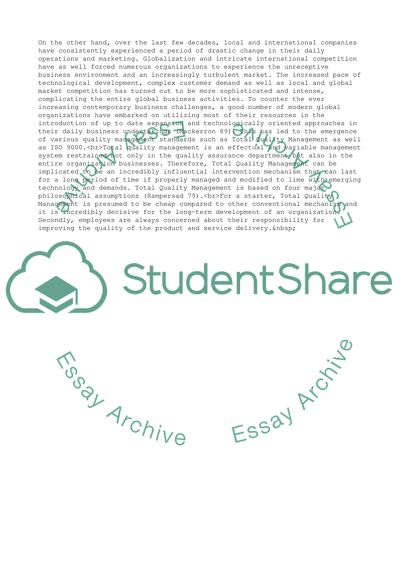Cite this document
(Total Quality Management and ISO in Toyota Motor Corporation Dissertation, n.d.)
Total Quality Management and ISO in Toyota Motor Corporation Dissertation. Retrieved from https://studentshare.org/management/1784737-total-quality-managemnt
Total Quality Management and ISO in Toyota Motor Corporation Dissertation. Retrieved from https://studentshare.org/management/1784737-total-quality-managemnt
(Total Quality Management and ISO in Toyota Motor Corporation Dissertation)
Total Quality Management and ISO in Toyota Motor Corporation Dissertation. https://studentshare.org/management/1784737-total-quality-managemnt.
Total Quality Management and ISO in Toyota Motor Corporation Dissertation. https://studentshare.org/management/1784737-total-quality-managemnt.
“Total Quality Management and ISO in Toyota Motor Corporation Dissertation”, n.d. https://studentshare.org/management/1784737-total-quality-managemnt.


